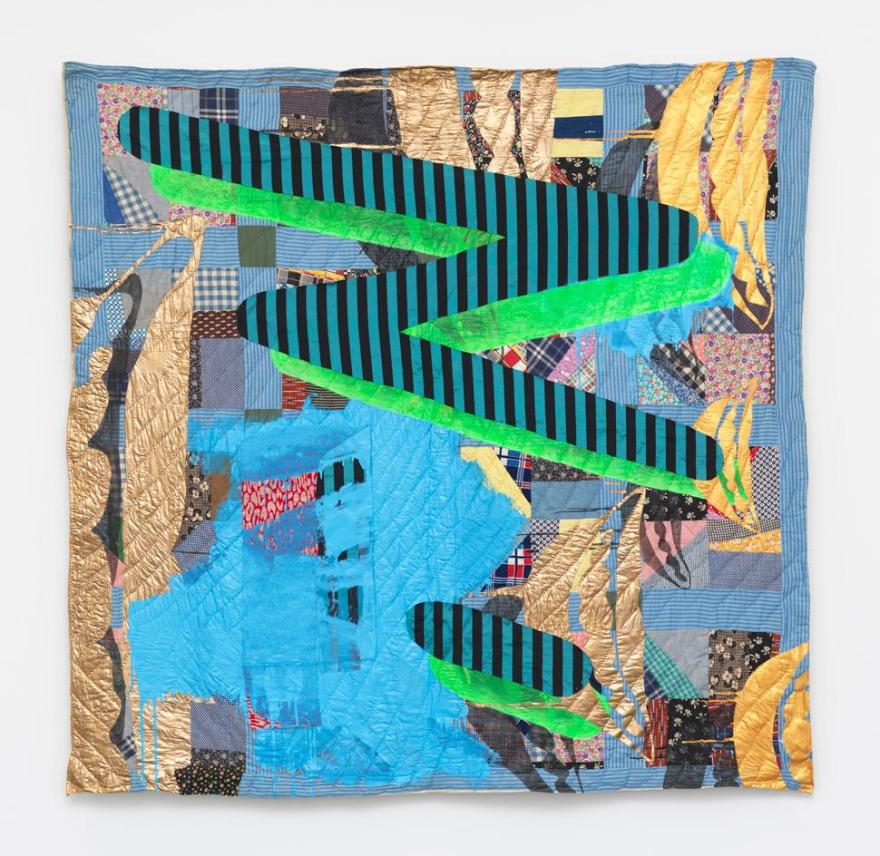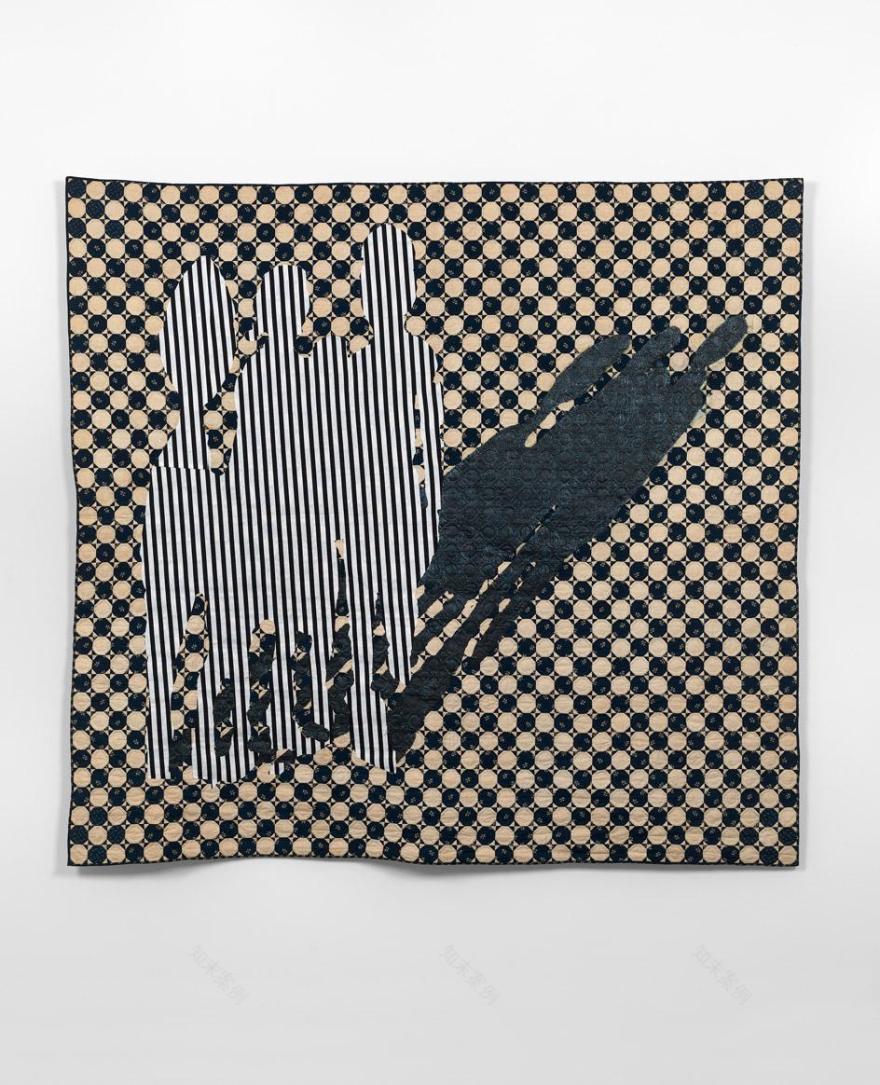查看完整案例


收藏

下载

翻译
At The Bronx Museum, the first survey of quilt-based works by New York-based artist Sanford Biggers sources codes in American history through pre-1900 antique quilts
Sanford Biggers, Reconstruction, 2019. Collection of Martin Nesbitt. Courtesy of the artist and Monique Meloche Gallery, Chicago. Photography: RCH Photography
The earliest traces of quilt making can be found in 3400 BC. Since then, the art of quilting winds through cultures across the globe, serving a broad range of functions: domestic, commemorative, sartorial and decorative.
Quilting is a tradition tightly stitched into the fabric of American history. From the quilt makers of Gee’s Bend, who occupy a remote hamlet on the Alabama River and have a history of quilting that dates back to the early 20th century, to the continuation of quilting traditions in the work of contemporary artists such as Faith Ringgold and Sam Gilliam.
Perhaps less familiar is quilting’s link to code-switching, the act of alternating between languages or linguistic codes according to context.
These are the themes embedded in New York-based artist Sanford Biggers’ latest show, ‘Codeswitch’, a presentation of almost 60 quilt-based works, which has just opened at The Bronx Museum.
Portrait of artist Sanford Biggers. Photography: Matthew Morrocco
Biggers is perhaps best known for works that reference African American history, ongoing police brutality against Black Americans and Buddhist spiritualism through a practice spanning film, performance, music and sculpture. Biggers draws connections between apparently disparate cultural practices and examines current sociopolitical events while unearthing the contexts that conceived them.
During the last decade, he has turned to quilts as a vehicle to transport new narratives. These often come to him in the form of antique heirlooms, which he acquires and alters. The series in this exhibition, titled Codex, includes mixed media paintings and sculptures placed directly on or made from pre-1900 quilts. He treats these works like an archive, an ‘ongoing material conversation that acquires new meanings over time’.
Biggers made his first quilt in 2009 for the Mother Bethel African Methodist Episcopal Church in Philadelphia, a stop on the Underground Railroad network. This led him to explore the much-disputed folklore narrative that during the antebellum period, quilt designs – hidden in plain sight on fences, washing lines and trees – communicated coded information to African American slaves about routes to freedom through the railroad system.
Above: Sanford Biggers, Quilt Somethin’ Close to Nothin’, 2019. Antique quilt, charcoal. Below: Quilt Chorus for Paul Mooney, 2017. Antique quilt, assorted textiles, acrylic, spray paint. © Sanford Biggers and Marianne Boesky Gallery
‘I began to search out quilts from the 1800s and add new layers of code through mark-making, painting, cutting, collaging and reconstruction’ Biggers explains. ‘I’m also interested in the tension of working on these objects that hold so much cultural and artistic weight, like embellishing or perhaps defacing history.’ In these works, Biggers views himself as a ‘late collaborator’, imposing contemporary interventions so viewers might interpret the series as a ‘trans-generational “codex” to decipher aspects of American culture’.
Much like linguistic code-switching, Biggers’ work deals in seamless plurality: the power of the past mixed with contemporary thought; high and low brow aesthetics; a liberated colour palette and black comedy. ‘The works in this show actively code switch. They exist as drawings, paintings, objects, archives, craft, low and high art,’ Biggers tells Wallpaper*. ‘My embellishment, erasure, defacement, and repair complicates the provenance and gender of these relics of Americana. They are remixed, chopped and screwed but their softness is ultimately their power.’ §
Incidental Geometry, 2017. © Sanford Biggers and Marianne Boesky Gallery. Photography: Object Studies
Bonsai, 2016. Courtesy of the artist and Marianne Boesky Gallery, New York and Aspen. © Sanford Biggers. Photography: Object Studies
The Talk, 2016. © Sanford Biggers and Massimo De Carlo. Photography: Todd White Art Photography
Nonsuch, 2019
Transition, 2018
客服
消息
收藏
下载
最近












